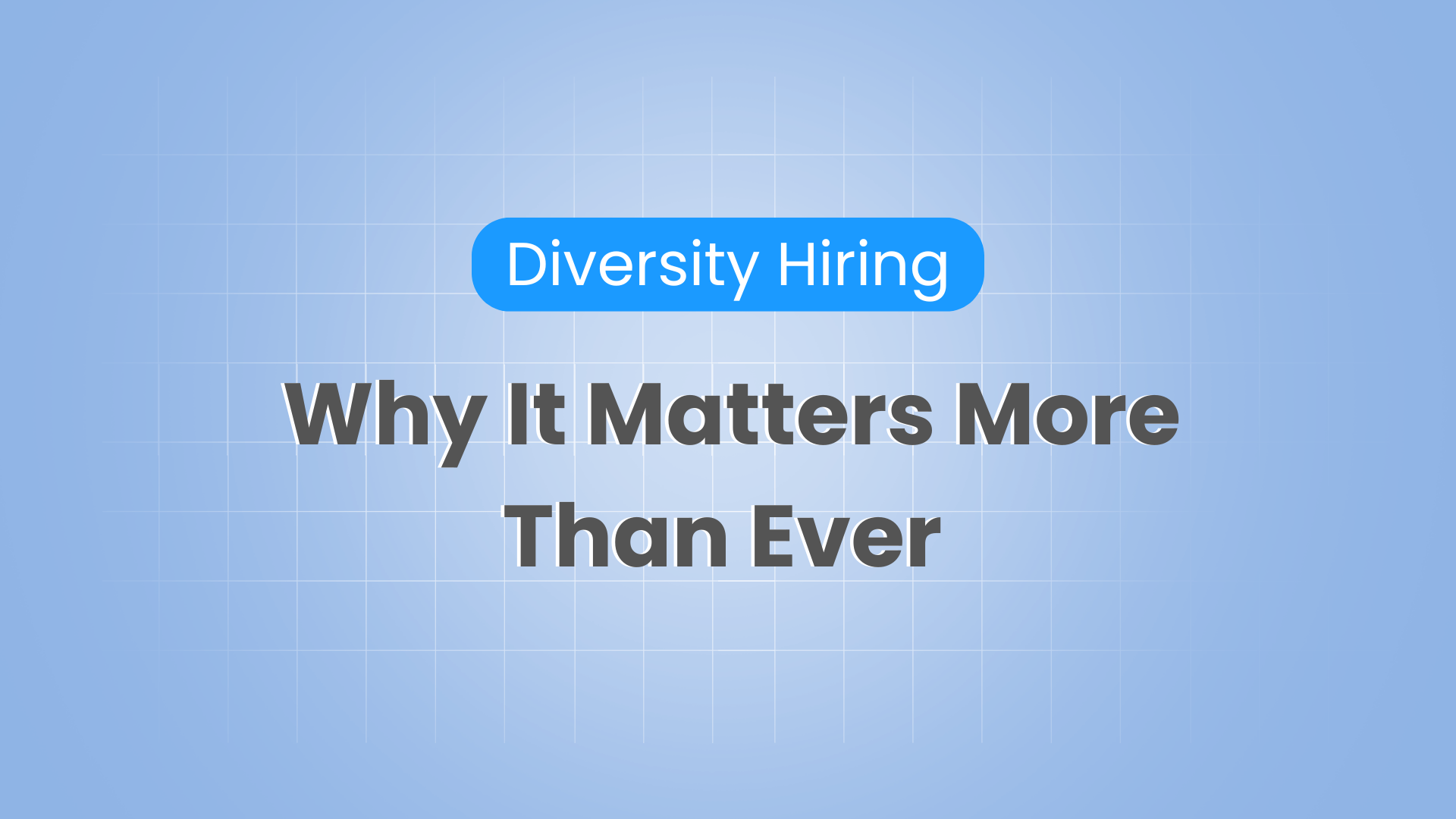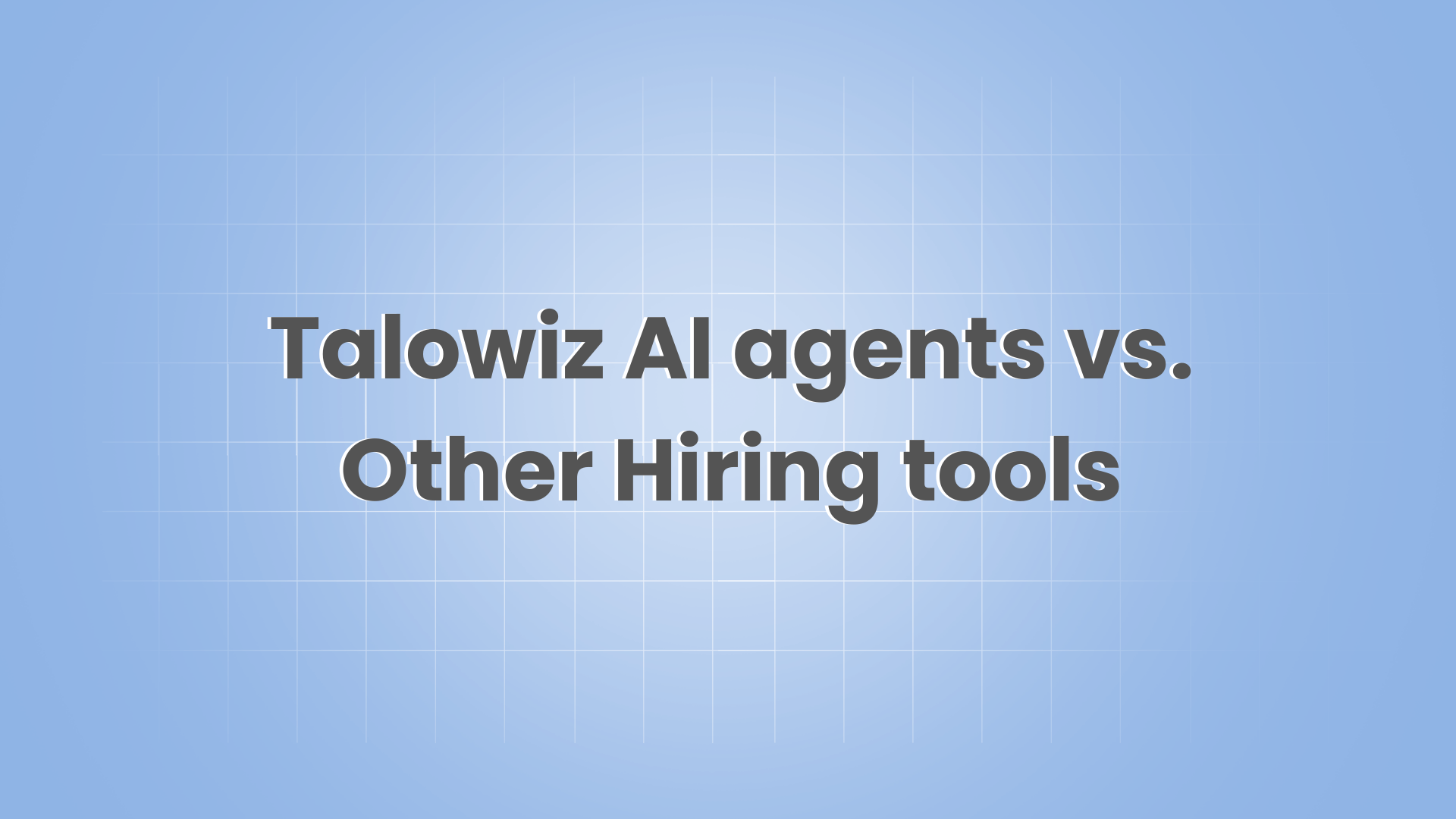Strategic Trends in Talent Acquisition (2025–2027)



Spoiler Alert: The Robots Aren’t Stealing Your Job, But They Might Help You Hire Better
Welcome to 2025. Where recruiters don’t just drink coffee and scroll through resumes anymore — they collaborate with AI agents, decode candidate sentiment with predictive analytics, and occasionally wonder if their AI chatbot is secretly judging their grammar.
Talent acquisition has never been more strategic, complex, and frankly, entertaining. From HR leaders stuck between hiring Gen Zs who want to work from hammocks in Bali to CEOs insisting on "culture fits" who also code in five languages, the battlefield of hiring has evolved. And if you're still just posting on job boards and hoping for the best? Let’s just say the future might not hire you.
So what’s really going on in talent acquisition between 2025 and 2027? And more importantly, what should leaders do about it?
Let’s break it down.
TL;DR
If you don’t have time to scroll through 2,000+ words on what’s shaping hiring between 2025–2027, here’s the espresso shot:
- AI is not a sidekick anymore – it’s building pipelines, predicting candidate success, and reducing screening hours.
- Predictive analytics now helps forecast not just who to hire, but who not to lose.
- Gen Z isn’t applying unless your culture is real, inclusive, and maybe remote-friendly.
- Flexibility is the default. Office-only job? Good luck.
- Gig workers are no longer "extra help" – they’re your future team.
- Internal mobility is the new recruiting. Don’t overlook talent that already has a company badge.
- Degrees are optional. Skills are mandatory.
- Employer brands now matter as much as your product brand. Maybe more.
- Diversity isn’t a checkbox. It’s a strategic advantage.
AI: From Gimmick to Strategic Wingman
Remember when AI in recruitment meant an awkward chatbot that greeted candidates with "Hello User" and ghosted halfway through the interview scheduling? Those days are over. In 2025, AI has graduated. Today, AI agents not only parse resumes but proactively build talent pipelines, engage passive candidates, and even recommend interview questions based on predictive performance models.
Unilever is already using AI video assessments to evaluate tone, language, and expressions to predict candidate fit. And according to LinkedIn, 61% of TA leaders say AI will improve how they measure quality of hire.
Better still, recruiters aren’t being replaced. They're being upgraded. LinkedIn reports a 2.3x spike in recruiters upskilling on AI tools, using them to slash screening time and actually speak to more humans. Think of it as Iron Man's suit for the humble recruiter.
And this tech-fueled evolution leads us to another superpower: data.
Note: To make AI agents do the recruiting for you, checkout Talowiz AI Agents
Predictive Analytics: The New Recruiter Sixth Sense
Gut feeling? Out. Data-driven hiring? In. Companies are leveraging analytics not just to see what happened, but to predict what’s next. Want to know which campus hires will quit in a year? Or which candidate is likely to become your next top performer? Predictive analytics can tell you.
Companies using these models are reportedly twice as likely to improve quality of hire. Amazon tracks not just candidate drop-off points, but recruiter effectiveness to tighten every bolt in the hiring funnel.
But the best part? This data-driven approach still needs a human storyteller. And today’s candidates are demanding a narrative that makes sense with their values.
Gen Z Is Here. And They Brought Receipts.
Meet Gen Z. They want flexible work, DEI you can prove, mental health benefits that actually work, and jobs that feel more like causes. Also, they'd like to use ChatGPT to write their resumes — and they probably already have.
Over 50% of job seekers now use AI to craft cover letters and prepare for interviews. And 82% of Gen Z say they trust companies more if they support social causes they care about.
So what does this mean for recruiters? For starters, employer branding must evolve from glossy brochures to radically transparent storytelling. If your Glassdoor rating doesn’t match your careers page, Gen Z will find out. Fast.
But don’t worry, they don’t expect you to be perfect — just real. And maybe let them work from Bali occasionally.
Flexibility: Not a Perk, a Baseline
Remote, hybrid, compressed workweeks, four-day sprints... today's workforce wants flexibility, and they're not asking politely.
72% of Gen Z professionals have either left or considered leaving jobs due to lack of flexibility. And 76% of global organizations now run hybrid models, according to Korn Ferry. This isn’t about pandemic leftovers; it’s about permanent shifts in how we work.
Flexibility isn’t just about location — it’s about control. Control over time, tasks, and energy. Which also explains why so many people are opting for freelancing or gig work.
Which brings us to the rise of the "fluid workforce."
The Gig Shift: Meet Your Next Hire (Who’s Not an Employee)
By 2027, over 50% of the U.S. workforce may be freelancing. Whether it’s developers in Argentina or designers in Nigeria, the world is a talent pool and the gig economy is a turbo-jet.
TA teams are now building flexible rosters of freelancers, alumni, and project-based specialists. Companies like PwC are experimenting with metaverse interviews and virtual onboarding to accommodate this global fluid workforce.
But flexibility isn't only for candidates. Organizations are adapting hiring strategies too — especially with internal talent.
Internal Mobility: The Goldmine in Your Org Chart
Why look outside when your next great hire is already in Slack? Organizations with strong internal mobility programs enjoy 30% higher retention.
Firms like Schneider Electric and IBM are investing in talent marketplaces and skill-mapping platforms that allow employees to explore new roles internally. With AI recommending internal gigs, the border between hiring and L&D is blurring.
Which brings us to one of the most important shifts of all: skills over credentials.
Skills-Based Hiring: Degrees Are Out, Skills Are In
A college degree? Nice to have. Actual skills? Non-negotiable. In 2025, 83% of organizations are prioritizing skills over formal qualifications.
Google, Apple, and IBM have all dropped degree requirements for many roles. Instead, they rely on assessments, micro-credentials, and hands-on portfolios. According to studies, 94% of companies say skill-based hires outperform those with just traditional qualifications.
This shift is especially critical as companies anticipate major skill disruptions by 2030. Which begs the question: How are organizations preparing?
Strategic Workforce Planning: Future-Proofing Begins Now
Forward-looking organizations are moving from reactive recruiting to proactive workforce planning. They're modeling talent needs years in advance, simulating attrition, and identifying emerging skill gaps.
In short, they’re building talent pipelines before the business even knows it needs them.
AI is again the secret weapon here, with tools that forecast hiring demands, track internal mobility data, and suggest succession planning moves.
But forecasting is only as good as your ability to attract the right people. And that's where employer branding becomes not just marketing, but strategy.
Employer Branding: Your New Talent Magnet
Today’s candidates are savvy. They research company culture, watch your TikToks, analyze your CEO’s LinkedIn posts, and read employee reviews.
Your EVP (Employee Value Proposition) is your loudest recruitment tool — if it's honest. According to Gartner, companies with a strong EVP see 70% lower turnover. It’s not about the flashiest perks but the real experience of working for you.
So if you’re wondering whether showcasing your team’s karaoke night on Instagram matters? It does.
Especially when candidates are also checking how diverse your team is.
DEI: Beyond Lip Service
Diversity, Equity, and Inclusion can’t be a tab on your website. Candidates expect action: diverse interview panels, inclusive policies, equitable pay.
McKinsey found companies in the top quartile for diversity are 36% more likely to financially outperform peers. But more importantly, diverse candidates can sniff out performative DEI faster than you can say "buzzword."
From blind resume screening to bias audits in AI tools, inclusive hiring is becoming both a legal safeguard and a competitive edge.
FAQ:
Q: Is AI going to replace recruiters?
No. But it will replace parts of your day you probably don’t enjoy. Like chasing hiring managers or sorting 800 irrelevant resumes.
Q: How can I attract Gen Z talent?
Be real. Be flexible. Stand for something. And maybe let them use AI to prep for interviews.
Q: What’s one thing I should start doing today?
Invest in internal mobility. If you don’t offer growth, someone else will.
Q: Is employer branding really worth it?
Only if you want your best candidates to pick you over a dozen identical offers.
Final Thoughts
The world of talent acquisition is shifting from transactional hiring to strategic talent orchestration. If you're still operating like it’s 2015, your future hires are probably already working elsewhere.
Whether it's using AI to screen better, offering meaningful flexibility, or just realizing your next superstar may already be in your building — the future belongs to those who adapt.
Not just fast, but smart.
And maybe with a chatbot or two.
References
- Korn Ferry (2024). Talent Acquisition Trends 2025 — kornferry.com
- LinkedIn (2025). Future of Recruiting Report — business.linkedin.com
- LinkedIn (2025). Talent Drivers Survey — linkedin.com
- ClearCompany/Lighthouse Research (2024). 6 TA Trends for 2025 — blog.clearcompany.com
- Oleeo (2023). 7 Recruitment Trends for 2025 — oleeo.com
- Qureos (2025). Gen Z Statistics for Employers — qureos.com
- Serendi (2023). Recruitment Trends 2025 — serendi.com
- GoodPeople (2024). What Candidates Want in 2025 — good-people.co
- ZipRecruiter (2024). Job Seeker Survey Q1 2024 — ziprecruiter-research.org
- McKinsey (2025). AI in the Workplace — mckinsey.com
Additional sources on DEI and global trends — oleeo.com, serendi.com

Upgrade now





